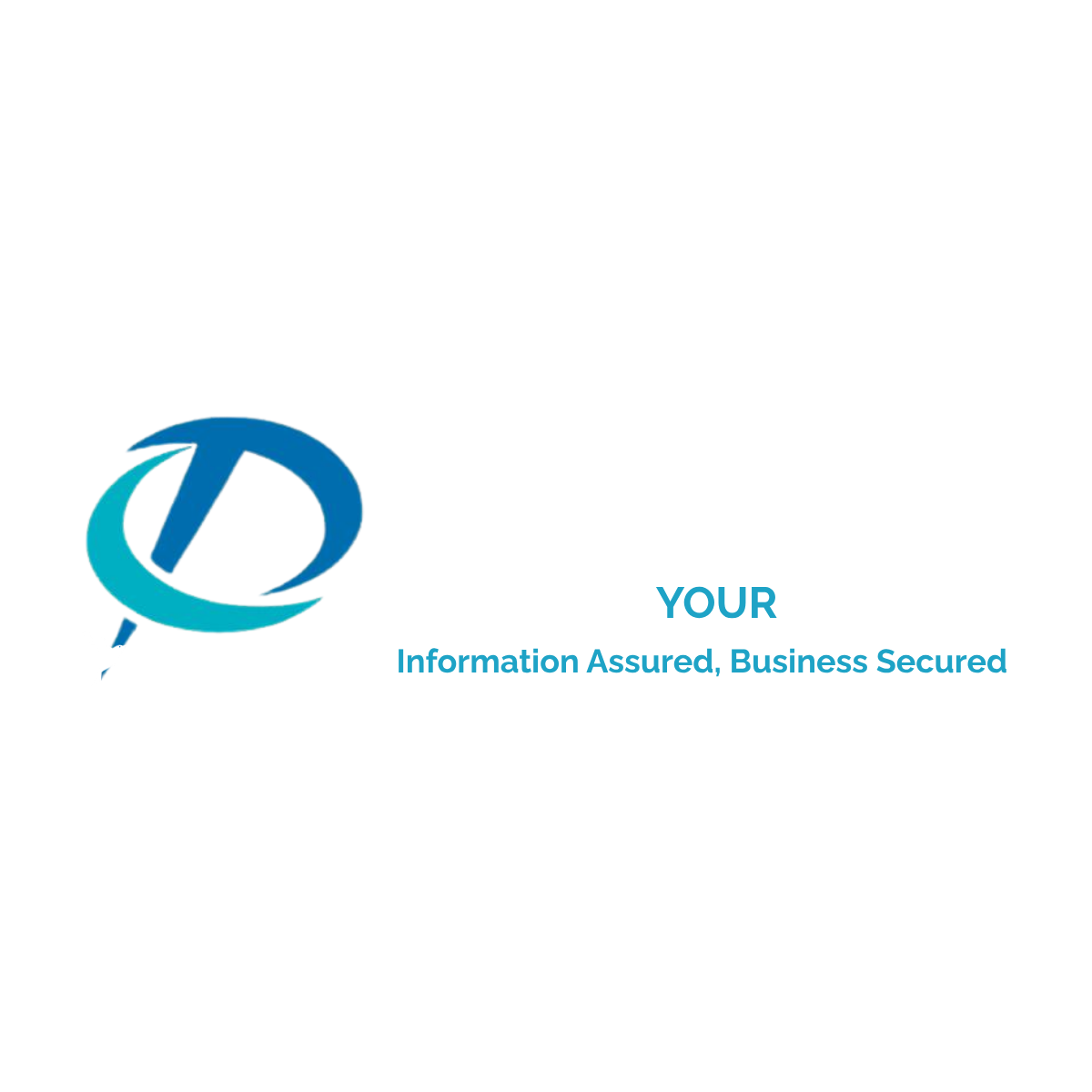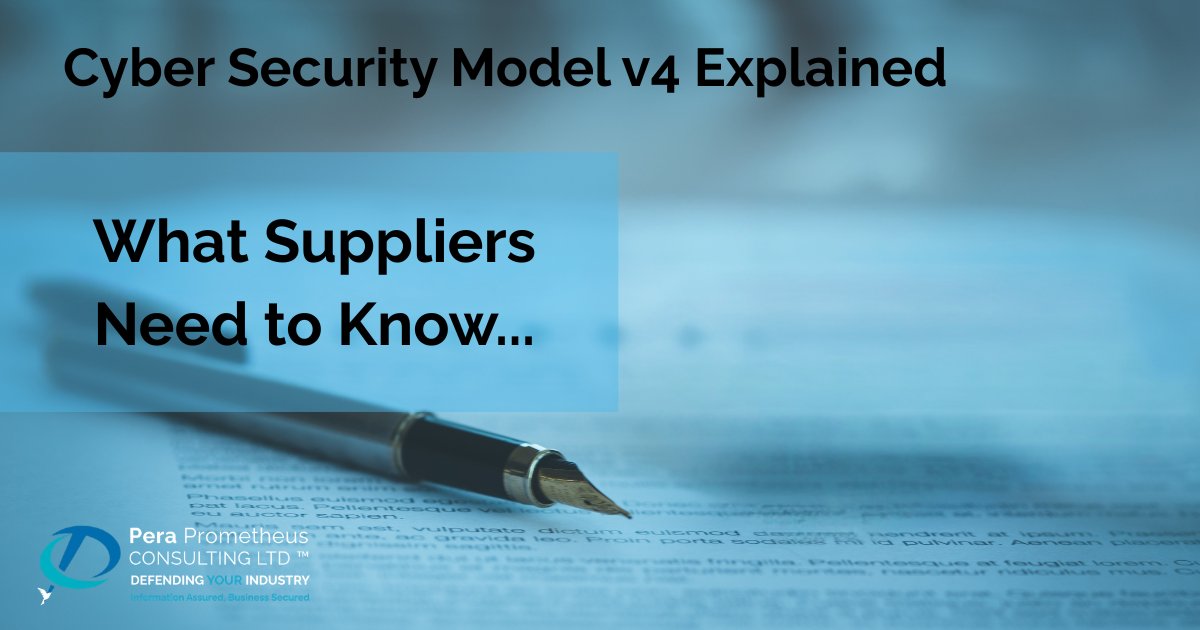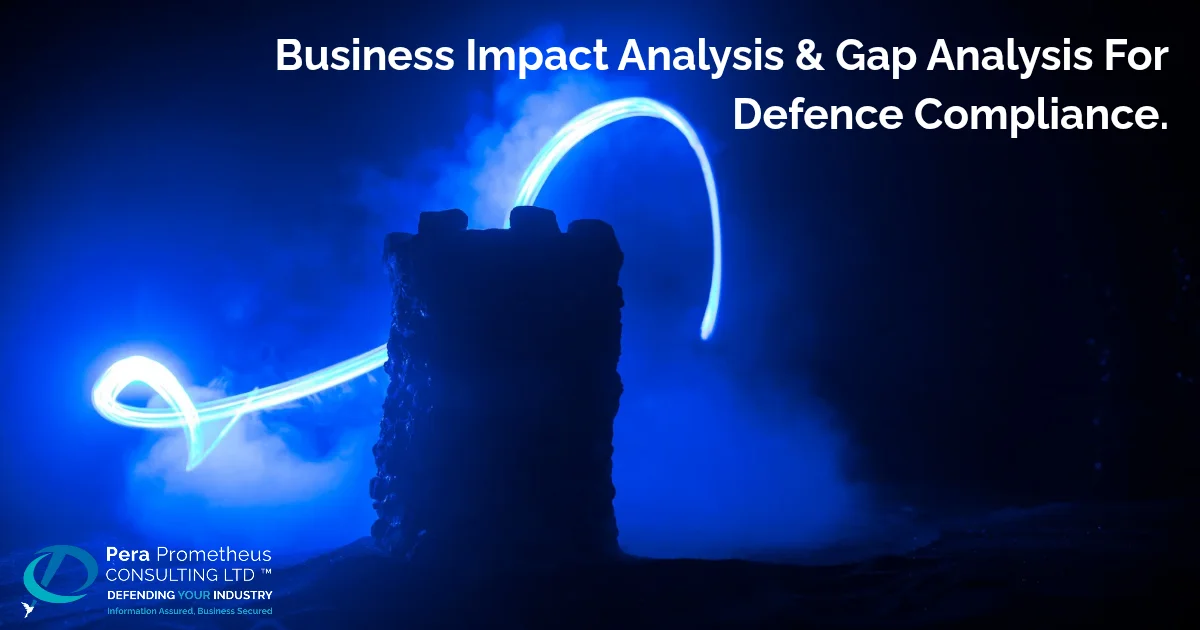by Gareth Shaw, Founder of Pera Prometheus
Table of Contents
Introduction
Artificial Intelligence (AI) is transforming industries, from defence to healthcare, by driving innovation in automation, analytics, and decision-making. However, as AI adoption surges, so do concerns about the security implications of incorporating AI into the working environment.
The ISO/IEC 42001:2023 standard has emerged as the first globally recognised framework for AI Management Systems (AIMS). This standard provides a clear roadmap for organisations to deploy AI responsibly, ensuring trust, safety, and compliance. It must be recognised however that this standard is in its infancy and still developing.
For UK businesses, particularly those in the defence sector or aspiring to secure defence contracts, adopting ISO/IEC 42001 is a strategic step toward building credible, ethical, and secure AI systems. This blog explores what ISO/IEC 42001 is, why it matters, and how businesses can incorporate it.
What is ISO/IEC 42001?
ISO/IEC 42001:2023, developed by the International Organisation for Standardisation (ISO) and the International Electrotechnical Commission (IEC), is a comprehensive standard that outlines best practices for managing AI systems. It focuses on ensuring AI technologies are ethical, transparent, and aligned with global regulations. ISO/IEC 42001 is specifically designed for AI, addressing its unique challenges like biases, data privacy, and accountability.
Who Needs to Adopt ISO/IEC 42001?
ISO/IEC 42001 is relevant for any organisation using or developing AI, but it is particularly critical for sectors with high-stakes applications. These include:
- Defence Industry: Companies building AI for intelligence analysis, surveillance, or autonomous systems must ensure compliance with ethical and regulatory standards to secure contracts with government bodies like the UK Ministry of Defence (MoD).
- Technology Providers: Firms developing AI solutions for automation, predictive analytics, or cybersecurity need robust governance to avoid ethical or technical pitfalls.
- Public Sector: Government agencies using AI for policy decisions or public services require transparency to maintain public trust.
- Other Industries: Sectors like healthcare, finance, and logistics, benefit from standardised AI governance.
Key Areas of ISO/IEC 42001
ISO/IEC 42001 provides a structured framework to manage AI systems across their lifecycle, focusing on key aspects that ensure ethical, reliable, and effective AI deployment. Below are the core areas of the standard, explained in simple terms to help businesses understand its scope and practical application:
- Ethical AI Development: This area emphasises designing AI systems that align with ethical principles, ensuring fairness and accountability. ISO/IEC 42001 requires organisations to establish policies that prioritise ethical considerations, fostering trust among stakeholders and compliance with regulations like the EU AI Act.
- Data Quality Assurance: High-quality, reliable, and secure data is critical for trustworthy AI outcomes. ISO/IEC 42001 mandates robust data management practices to ensure data integrity and security.
- Risk Management: The standard requires regular assessments to identify and mitigate risks, such as bias, breaches, or unintended consequences.
- Transparent Decision-Making: AI systems should ensure transparency and trust so decisions can be explained to stakeholders. ISO/IEC emphasises documenting AI processes and maintaining clear records.
- Performance Measurement: ISO/IEC 42001 highlights the importance of evaluating AI systems regularly to ensure they achieve intended results.
What are difficulties on implementing ISO/IEC 42001?
While ISO/IEC 42001 offers significant benefits, implementation can be challenging, especially for organisations new to AI governance. Common hurdles include:
- Resource Demands: Adopting the standard requires investment in staff training, process updates, and compliance teams. Small businesses may find this resource intensive.
- Technical Challenges: Ensuring AI systems are transparent, unbiased, and secure often involves re-engineering algorithms or data pipelines.
- Evolving Regulations: Global AI laws, such as the EU AI Act, are still developing, requiring organisations to stay agile and adapt to new requirements.
- Ongoing Monitoring: AI systems evolve over time, necessitating continuous risk assessments to maintain compliance.
The Role of Senior Leadership in AI Governance
For ISO/IEC 42001 to succeed, senior leadership must drive its adoption. Executives play a pivotal role in embedding responsible AI practices into the organisation’s culture.
Key Responsibilities:
- Set Clear Policies: Define AI ethics and governance guidelines that align with business objectives and ISO/IEC 42001 requirements.
- Invest in Training: Provide employees with training on AI technology and governance, ensuring they understand ethical and compliance principles.
- Promote Transparency: Communicate openly with stakeholders about how AI is utilised in the business operations building trust and credibility.
- Monitor Progress: Regularly review AI systems to ensure ongoing compliance and alignment with strategic goals.
By championing ISO/IEC 42001, leadership can ensure AI initiatives enhance business performance while minimising risks, particularly in the defence sector where trust and compliance are paramount.
Final Thoughts
AI is reshaping industries and eventually businesses not utilising AI in many cases will struggle to compete with their competitors. This may not be a pleasing fact but technology if ruthless and waits for no one. As we progress, standards and governance in AI will evolve which are essential to harness its potential while managing risks. ISO/IEC 42001 provides a robust framework to ensure AI systems are ethical, transparent, and compliant, particularly for UK defence contractors and businesses in critical sectors. Although ISO/IEC 42001 certification is not legally required, by adopting this standard, organisations can build trust, secure contracts, and stay ahead of evolving regulations. Understandably, businesses will have difficulties in complying to AI standard, however, seeking expert help will ensure smooth transition to the upcoming AI driven world. Ready to embrace responsible AI? Contact Pera Prometheus to explore our consultancy, training, and auditing solutions for ISO/IEC 42001 implementation




